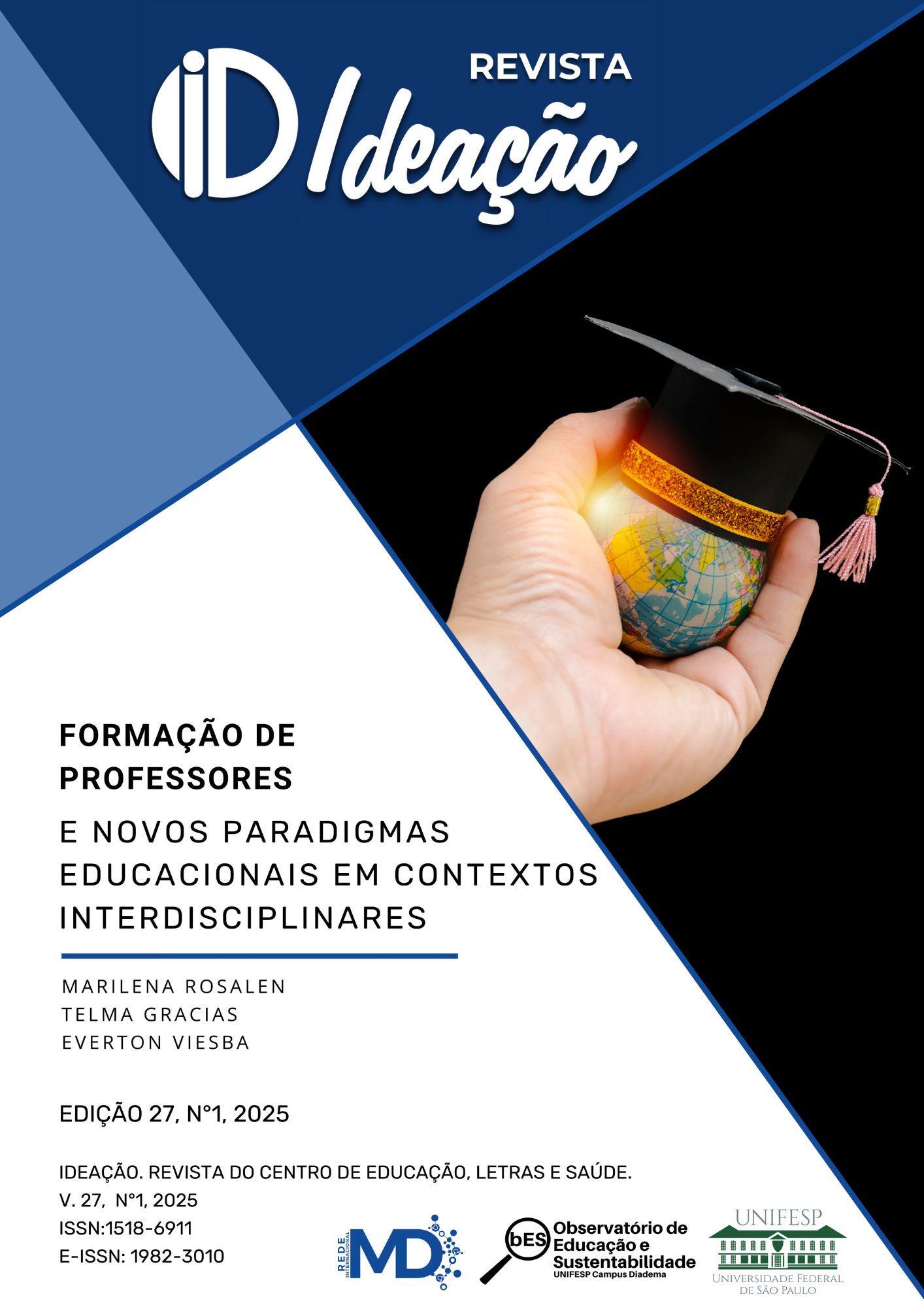PERCEPÇÕES DE PROFESSORES DE MATEMÁTICA SOBRE PROCESSOS AVALIATIVOS
UMA PROPOSTA DE REVISÃO DA LITERATURA
DOI:
https://doi.org/10.48075/ri.v27i1.34803Palavras-chave:
avaliação, ensino de Matemática, percepção docente, processos avaliativos, ensino-aprendizagemResumo
Este artigo investiga as percepções de professores de Matemática sobre processos avaliativos no ensino, analisando como suas práticas refletem entendimentos sobre os processos avaliativos. Por meio de uma Análise Bibliográfica fundamentada na Análise de Conteúdo proposta por Bardin, o estudo explora desafios e inovações nos métodos avaliativos. Baseando-se em autores como Hoffmann, Luckesi e Freire, evidencia-se a importância de práticas democráticas e formativas que valorizem o desenvolvimento integral do estudante. Os resultados indicam que, embora docentes reconheçam a relevância da avaliação como ferramenta pedagógica, abordagens tradicionais ainda predominam, sendo limitadas pela ênfase em resultados quantitativos e pela pressão das avaliações externas de larga escala. O estudo também aponta avanços na adoção de métodos inclusivos, como autoavaliações e projetos interdisciplinares. Sugere-se a ampliação da formação docente com foco em práticas avaliativas contextualizadas e políticas públicas que promovam uma cultura avaliativa mais democrática e equitativa.
Downloads
Publicado
Como Citar
Edição
Seção
Licença
Copyright (c) 2025 Direitos partilhados conforme licença CC BY-NC-SA 4.0

Este trabalho está licenciado sob uma licença Creative Commons Attribution-NonCommercial-ShareAlike 4.0 International License.
Política para Periódicos de Acesso Livre
Autores que publicam nesta revista concordam com os seguintes termos:
1. Autores mantém os direitos autorais e concedem à revista o direito de primeira publicação, com o trabalho simultaneamente licenciado sob a Licença Creative Commons Attribution que permite o compartilhamento do trabalho com reconhecimento da autoria e publicação inicial nesta revista.
2. Autores têm autorização para assumir contratos adicionais separadamente, para distribuição não-exclusiva da versão do trabalho publicada nesta revista (ex.: publicar em repositório institucional ou como capítulo de livro), com reconhecimento de autoria e publicação inicial nesta revista.
3. Autores têm permissão e são estimulados a publicar e distribuir seu trabalho online (ex.: em repositórios institucionais ou na sua página pessoal) a qualquer ponto antes ou durante o processo editorial, já que isso pode gerar alterações produtivas, bem como aumentar o impacto e a citação do trabalho publicado (Veja O Efeito do Acesso Livre).
Licença Creative Commons
Esta obra está licenciada com uma Licença Creative Commons Atribuição-NãoComercial-CompartilhaIgual 4.0 Internacional, o que permite compartilhar, copiar, distribuir, exibir, reproduzir, a totalidade ou partes desde que não tenha objetivo comercial e sejam citados os autores e a fonte.


